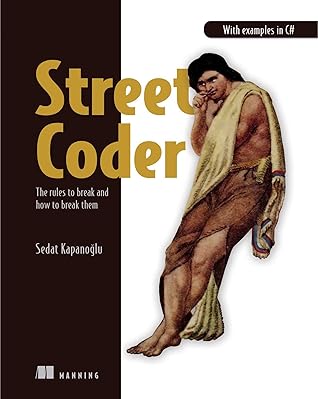Kindle Notes & Highlights
Read between
April 15 - May 12, 2023
In the beginning, there was void. When the first electrical signals hit the first bit in the memory, there became data. Data was only free-floating bytes. Those bytes got together and created structure. —Init 0:1
Bugs are already costly, and fixing them takes time when they are part of a new feature. When it’s a regression, that’s worse than releasing a new feature with bugs—it’s a step backward. Missing a shot in basketball is a bug. Scoring a goal on your own hoop, effectively scoring for your opponent, is a regression. Time is the most critical resource in software development, and losing time has the most severe penalty. Regressions lose the most time. It makes sense to avoid regressions and avoid breaking the code.
3.1.3 Respecting boundaries The first habit you must adopt is to avoid violating abstraction boundaries for dependencies. An abstraction boundary is the logical borders you draw around layers of your code, a set of the concerns of a given layer. For example, you can have web, business, and database layers in your code as abstractions. When you layer code like that, the database layer shouldn’t know about the web layer or the business layer, and the web layer shouldn’t know about the database, as figure 3.3 shows. Figure 3.3 Violation of abstraction boundaries that you need to avoid Why is
...more
I propose a cleaner approach: repeat yourself. Instead of trying to merge every single bit of logic into the same code, try to have separate functions with perhaps slightly repetitive code.
On SOLID principles There is a famous acronym, SOLID, that stands for five principles of object-oriented programming. The problem is that SOLID feels like it was invented to make a meaningful word rather than to make us better programmers. I don’t think all its principles carry the same importance, and some may not matter at all. I strongly oppose embracing a set of principles without being convinced of their value. The single-responsibility principle, the S of SOLID, says a class should be responsible for one thing only as opposed to one class doing multiple things, aka God classes. That’s a
...more
This highlight has been truncated due to consecutive passage length restrictions.


